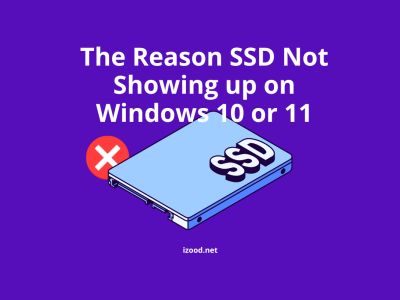
Writers everywhere are at the mercy of their writing tools. The better your tools, the better your work can be. That’s why you need to make sure you’re using these 10 essential tools in your business.
Google Docs
Grammarly
ProWritingAid
Hemingway Editor
Pocket
Bear
Evernote
LINER
What are the writing Tools?
There are a few tools that every writer can use in their business to help them be more productive and organized. A good writing software can help you get your thoughts down quickly and easily, while a project management tool can help you keep track of deadlines and progress.
You can also read: Top 10 education websites to teach you for free
A great way to get started is by using a tool like Scrivener, which is designed specifically for writers. It has all the features you need to get your work done, including a word processor, research tools, and outlining capabilities. Once you have your draft written out, you can move onto a tool like WordPress to start setting up your website or blog.

If you’re working on longer projects, such as books or eBooks, it’s important to have a solid system for managing your deadlines and progress. A tool like Trello can be really helpful for this. You can create different boards for each project you’re working on, and then add tasks and deadlines to each board. This will help you stay on top of everything and make sure nothing falls through the cracks.
Why use them?
There are a few key reasons for why you should use tools as a writer. First, they can help you save time by automating or simplifying certain tasks. For example, using a tool like Microsoft Word can help you format your document faster and with fewer errors than if you were to do it by hand.
Second, tools can help you be more productive by allowing you to work on multiple tasks simultaneously or by providing features that make it easier to complete a task. For instance, many word processors have spell check and grammar check built in, which can save you time and improve the quality of your work.
Third, tools can help you be more efficient in your work by automating repetitive tasks or providing shortcuts to common commands. This can free up your time so that you can focus on other aspects of your writing, such as coming up with new ideas or revising your work.
Fourth, tools can provide valuable feedback that can help improve the quality of your writing. For example, using a tool like Google Analytics can show you how people are interacting with your website or blog, what type of content is most popular, and where people are coming from. This information can be used to make changes to improve the overall experience for your readers.
Finally, tools can help ensure that your work is accessible to a wider audience by providing features like text-to-speech or translation into different languages.
Here are the top 10 writing tools to use in 2022:
1. Google Docs
Google Docs is a free online tool that lets you create and share documents, spreadsheets and presentations with anyone, anywhere—even if they don’t have a Google account. With Google Docs, you can work on the same document simultaneously with others in your writing project, without version control issues or formatting inconsistencies.
Pros:
- Free to use
- Works offline
- Lightweight and void of unnecessary features
- Available anywhere
- Syncs with Google Drive
Cons:
- Fewer features than Microsoft Word
- Can be difficult to use if you’re accustomed to Microsoft Word
- Not as widely used as Microsoft Word
2. Grammarly
Grammarly is a grammar checker and writing assistant that helps you find grammar errors without costly hours of editing. It’s my go-to editing tool thanks to its ease-of-use and effectiveness. Before Grammarly, I used to spend hours checking every sentence I wrote to make sure I didn’t make any mistake. The fact I’m not a native speaker didn’t help either.
Pros:
- Finds grammar errors and suggests corrections
- Helps improve your writing skills
- Easy to use
- Available as a browser extension, app, and Microsoft Office add-in
- Free version available
Cons:
- May not catch all grammar errors
- The free version is limited in features
- Correcting errors can be time-consuming
3. ProWritingAid
ProWritingAid is a grammar checker, style editor, and an AI-powered writing mentor. ProWritingAid is a new writing tool I’ve had the luck of starting to use thanks to an offer I got from the company. While I’m not being paid to talk about them, I can say they’re a great alternative to Grammarly. To start using this tool, you first need to upload or paste your content into their editor.
Pros:
- Free grammar checking
- In-depth analysis of your writing
- Easy to use interface
- Helps improve your writing over time
- Can be used for any type of writing
Cons:
- May not catch all errors
- Some features only available in premium version
- Takes time to get used to
4. Hemingway Editor
Hemingway is a free tool for editing web content. It was designed to help you remove fluff and cut the word count down. This is done by identifying complicated words and sentences, suggesting synonyms and different ways of saying things, and pointing out passive or complex sentences. The final readability score it assigns you can help you decide whether the text is for your blog, a Facebook update, or a tweet.
Pros:
- Free to use
- Time-saving
- User-friendly
- Writing analysis tools
- Assigns a readability score
Cons:
- Some users have found it difficult to understand the readability score
- May not be suitable for more complex writing
- Some users have found the tool glitches
5. Pocket
Pocket is a Chrome extension that helps you save interesting and important content you find while browsing the internet to read later. The app works without any complicated logins or sign-ups, simply install it in your browser and start saving stuff. nd if you need to access the articles later on your phone or while commuting on your way to work (or just at home), they sync across all devices.
Pros:
- Saves articles for later
- Helps with research
- Easy to use
- Available on multiple platforms
- Can be used offline
Cons:
- Not all websites are compatible
- Cannot save entire websites
- Limited storage
6. Bear
Bear is a minimalist writing app for writers who want a distraction-free environment. Its simplicity and ease of use has quickly made Bear one of the most popular writing apps in the market. In contrast with other writing tools (like Evernote which I feature next), Bear has a single-minded focus on writing. The app has few bell and whistles, and such is the reason why it’s so good to use.
Pros:
- Clean and simple interface that is easy to use and navigate
- Distraction-free writing environment
- Supports markdown formatting for easy styling of your text
- Cloud sync across devices
- Export to various formats (PDF, HTML, Word, etc.)
Cons:
- Limited customization options
- No collaboration features
- No organization features beyond tagging
7. Evernote
Evernote is a powerful note-taking app that comes with a suite of features, from screenshot taking to to-do lists to team collaboration, and much more. With over 225 million users, Evernote is the most popular note-taking app of the market. Evernote can be a wonderful writing app for any type of writers and marketers alike. Among the many useful features that writers will like to use you have:
Pros:
- Available on multiple platforms including Windows, Mac, Android, and iOS
- Clean and user-friendly interface
- A suite of features including screenshot taking, to-do lists, team collaboration, and much more
- Evernote integrates with a number of third-party apps and services
- A premium subscription service that unlocks even more features
Cons:
- Expensive for some users
- Some users may find the interface to be too simple
- May not have all the features that some users need or want
8. LINER
LINER is an online extension for your browser that helps you save articles, videos, or any other text that you find online. You can highlight anything from a paragraph to individual words, and then save it for later. LINER was created because we think the current options for saving content online are either too powerful or not powerful enough. We wanted to create a tool that was more subtle and tailored to how most people browse the internet.
Pros:
- Saves time by allowing users to highlight individual sentences or words instead of entire pieces
- Conveniently located toolbar allows easy access to highlighting tool
- Can be used on any website
- Share highlights with others via social media or email
- Differentiate between different types of highlights with different colors
Cons:
- Only available for Google Chrome
- Limited export options
- No way to organize saved highlights
How do they work?
There are a few key tools that every writer can use in their business to help them be more productive, organized, and efficient.
The first tool is a good writing software. This can be something as simple as Microsoft Word or Google Docs, or a more specialized program like Scrivener. A writing software will help you keep track of your ideas, notes, and drafts all in one place. It also makes it easier to format your text and export it in different formats (e.g., PDF, DOC).
The second tool is a task management system. This could be a physical planner with Post-It notes, or a digital app like Trello or Asana. A task management system helps you keep track of what needs to be done and when. It’s especially helpful for keeping track of deadlines and due dates.
The third tool is a note-taking app. This could be the notes app on your phone, or a more robust app like Evernote or OneNote. A note-taking app allows you to quickly capture ideas and thoughts before they slip away. You can also use it to store research material, quotes, and other reference information.
These are just a few of the essential tools that every writer can use in their business. By investing in these tools, you’ll be able to work smarter and more efficiently – which will lead to better results (and less stress!).
Also Read: How to Freeze a Row in Excel
Conclusion
There are a lot of great tools out there for writers, and it can be tough to know which ones to use. I hope this list has given you some ideas of how to get started in your business. Remember, the most important tool you have is your own mind, so never stop learning and expanding your skillset. With the right tools and attitude, you’ll be well on your way to success as a writer.











